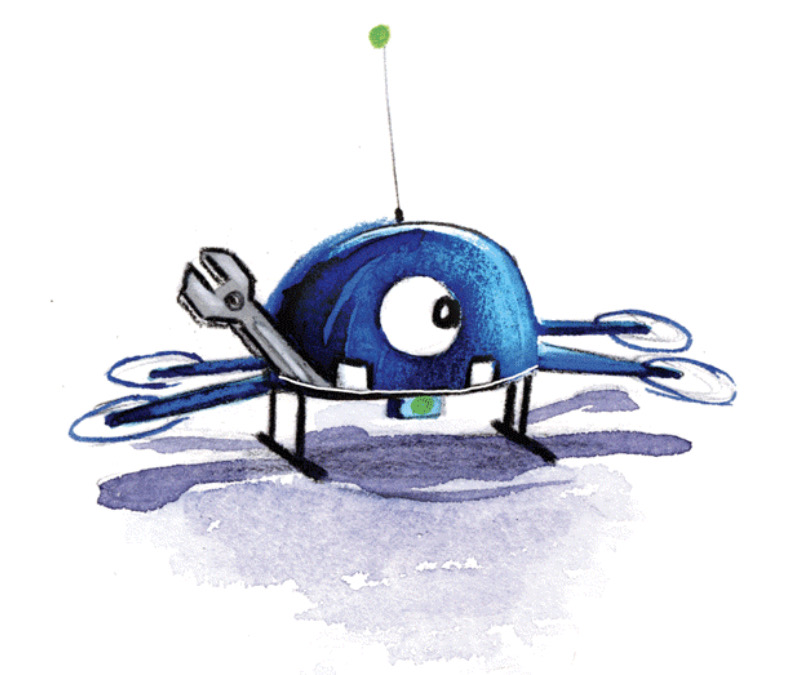What is a typical work day for you?
First, after my kids go off school, I read and respond to emails
and look over my to-do list for the day (which includes work and non-work
stuff) then, I feel free to let my creative brain drive for the rest of my work
time (while the kids are at school). That may be brainstorming text for a story
I’m pondering or sketching out a book dummy at the Barrel House coffee shop or
painting spreads at my home studio space. If I’m in the thick of writing or
revising a manuscript, I typical work at home (because I constantly read my
written words out loud, over and over, to achieve the right cadence and
rhythm).
How many hours do you work in a typical week?
30-40
What parts of your job do you find most challenging?
I find writing the most challenging. It doesn’t come very easy to me. I’m much better at art and ideas J
What do you find most enjoyable?
There’s so many things … but maybe when you know you have a
killer idea and you can’t even sleep because you are so excited to write down
notes and thoughts right then and there. That’s such a rush! And it’s even
better when you wake up the next day and still feel pumped for it.
(Sometimes, I wake up and say – What was I thinking? That ideas blows!)
I also LOVE reading to kids and seeing them enjoy the story,
root for your characters, and laugh and get the jokes J
I love that I get paid to improve my craft. I love being a part
of the book world … and of kids’ childhoods all over the world because my book
reached them there.
What are some aspects of your job, besides writing, that one might not expect?
There’s a lot of public speaking involved! From school visits to
conferences- I’ve definitely had to face that fear. But now, I really enjoy it.
Can you describe the process of creating a book from an idea?
When I get a great idea… a really great idea that I believe
would: 1.) Be fun to create and 2.) Sell, I start by writing down lots of
thoughts in the Notes app on my phone. Maybe plot points, clever possible
titles, jokes, characters, and maybe even a sketch or two. Then I let that idea
simmer for a day or so. Then, I share the idea with my husband, Ben. He’s my
first filter almost always. If he responds well to the idea, then I go deeper into
fleshing out the idea into a synopsis or a rough manuscript to share with my
critique groups. Then I revise and revise until I feel ready to show it to my
agent. Then, there’s usually more revising rounds until it’s ready to submit to
editors. Sometimes an editor will want it, sometimes they don’t. If they don’t,
then I may keep studying and revising to figure out why it wasn’t appealing
enough at the time. But if an editor buys it, then there’s usually more editing
and revising based on their feedback. Little by little, it will get better and
better and when it’s ready, I get the green light to illustrate J
That takes about 4-6 months. And the book comes out about 1 year after the
illustrations are completed.
How do you go about getting your work published?
I found an agent that believes in my work. I believe her 15% fee
is worth every penny. She constantly lunches with various editors, travels to
various conferences, etc. She networks for me so I can spend my time creating!
Did you acquire a specific education as a prerequisite for your career? If so, can you describe it/your experience?
The best education I got for my specific work is what I learned
from attending many many SCBWI (Society of Childrens Book Writers and
Illustrators) conferences and by being very involved in a writers (critique)
group.
What educational path would you recommend I take to become successful as a professional writer?
I would most recommend joining an association (like SCBWI) for
the type of writing you want to pursue. I’m sure studying creative writing formally
or informally would be greatly beneficial.
What skills do you think are necessary for a professional writer?
The ability to wear many different hats such as: a writer, a
business person, a creative person, a marketer, a public speaker, and be
self-disciplined with your work time.
Are these skills unique to an author? No. Do you think they would apply to other writing careers? Definitely.
I understand that it is not easy to be successful in the writing field. How do you set yourself apart from others?
I guess I’m just myself, but I also strive to create something that is really hard for the “gatekeepers” to turn down. I don’t always achieve it, but I believe a killer idea + great writing + professionalism and being nice to work with + great art = a pretty good chance of getting published and enjoyed by readers :)
What advice would you give me as I pursue a writing career?
Read what you strive to write. Read a lot. Write. Get your butt
in the chair and write even when you don’t feel like it. Most times you won’t.
Strive simply for growth in everything you attempt to write and do, not
perfection. And listen to well-meaning criticism of your work, but only act
on the criticism that resonates with you. Trust your gut. Most of the time,
it’s right.

